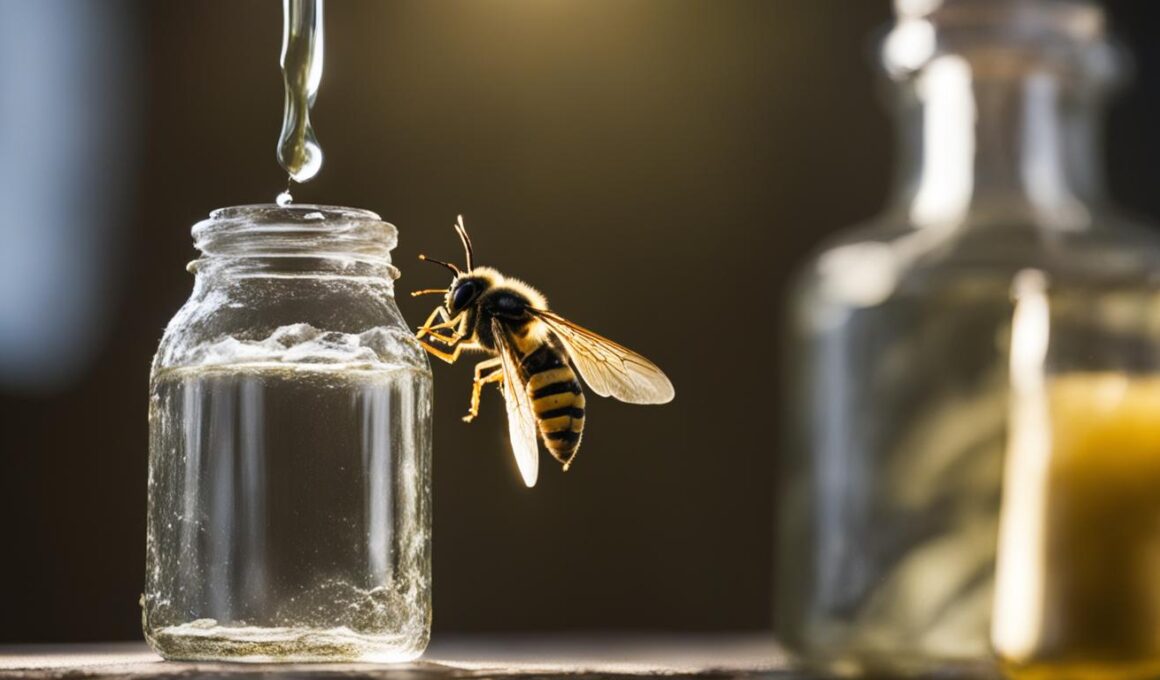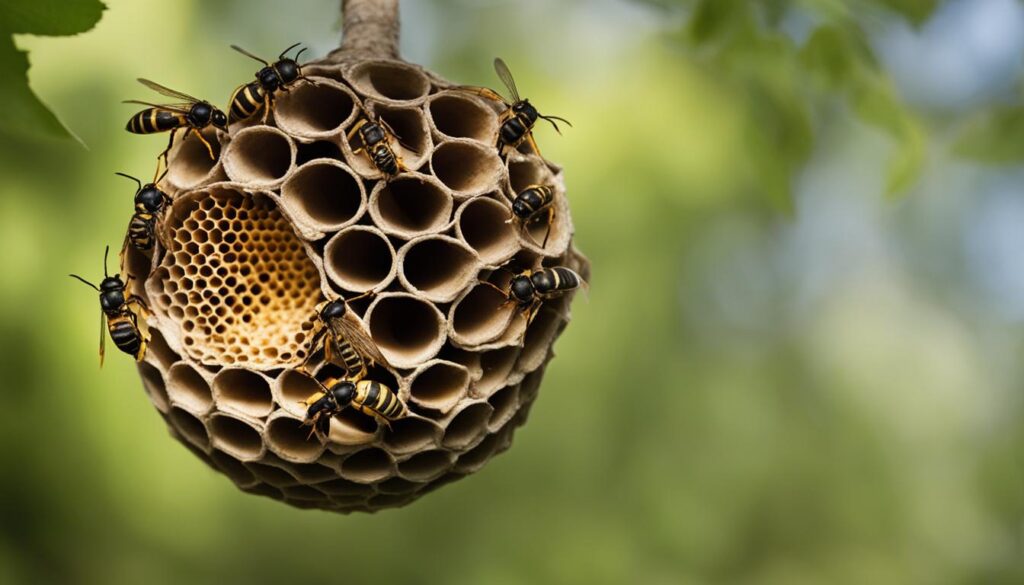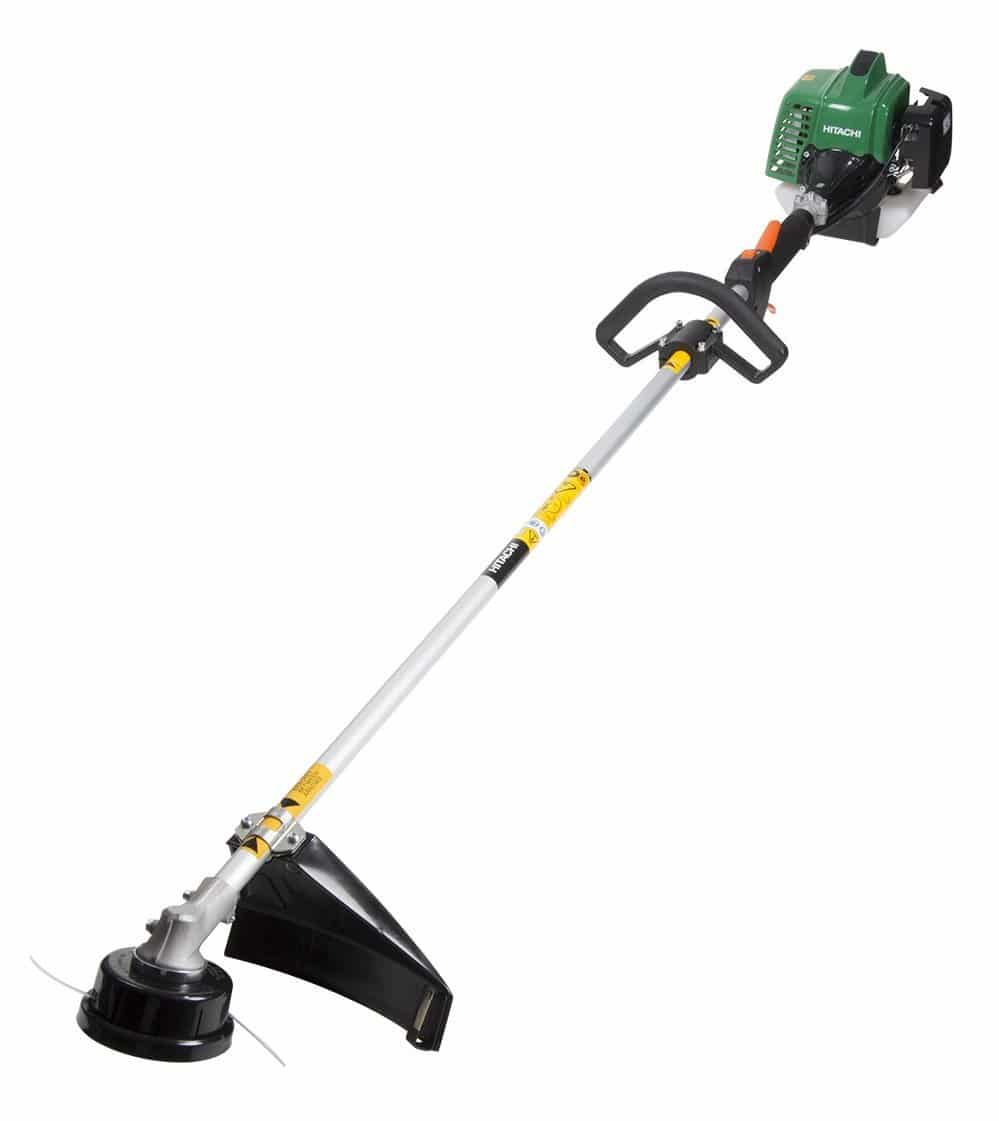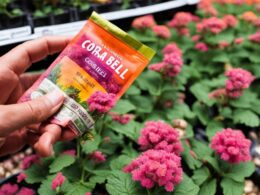When it comes to natural insecticides, vinegar is often touted as a potential solution for dealing with pesky wasps. But does vinegar really kill wasps? Let’s explore the effectiveness of vinegar in controlling these stinging insects.
Experts suggest that vinegar can indeed serve as a useful tool in your battle against wasps. However, its effectiveness largely depends on how it is used. While spraying white vinegar around doors, windows, and porches can act as a repellent and deter wasps from entering your living spaces, it may not necessarily kill them.
Directly spraying vinegar on the hive or nest can be risky, as it may anger the colony and increase the chances of getting stung. Moreover, white vinegar can cause burns and irritation to the bodies of wasps, potentially making them more aggressive towards humans.
If you’re looking to attract and eliminate individual wasps, creating traps using a mixture of apple cider vinegar, dish soap, and sugar can be effective. Regularly emptying and refreshing these traps will ensure maximum effectiveness.
However, if you’re primarily seeking a natural alternative to chemical pesticides, there are eco-friendly options on the market that are both safe for bees and effective against wasps. Additionally, planting wasp-repellent plants in your yard can help prevent them from settling in the first place.
While vinegar may not be the most potent weapon for killing wasps, it can serve as part of a comprehensive wasp control strategy. It’s important to consider calling a professional pest control technician if you’re dealing with large swaths of wasps or hives on your property. Ultimately, the best course of action for effective wasp control may vary depending on the severity of the infestation and specific circumstances.
Using Vinegar as a Repellent
When it comes to repelling wasps, vinegar can be a useful tool in your arsenal. The strong scent of vinegar is a natural deterrent for these pesky insects, making it an effective wasp repellent. By spraying white vinegar around doors, windows, or porches, you can create a barrier that discourages wasps from entering your living spaces.
However, it’s important to note that vinegar alone may not be able to kill wasps. It can only repel them and keep them at bay. If you’re dealing with a wasp nest or hive, spraying vinegar directly on it can be risky. Doing so may anger the colony, increasing the chances of getting stung. It’s crucial to proceed with caution and avoid direct contact with the insects.
Moreover, spraying vinegar directly on wasps can cause burns and irritation to their bodies, potentially making them more aggressive. It’s essential to prioritize your safety when using vinegar as a repellent.
To maximize the effectiveness of vinegar as a wasp repellent, you can also create vinegar traps. These traps can be made by mixing apple cider vinegar with dish soap and sugar. The sweet smell of the vinegar and sugar will attract the wasps, while the dish soap will cause them to drown.
Remember to regularly empty and refresh these traps to ensure their effectiveness. By utilizing vinegar traps in combination with spraying vinegar in key areas, you can improve your chances of repelling and controlling wasps naturally.
Alternative Methods to Kill Wasps
If you’re looking for alternative methods to kill wasps and want to avoid using vinegar or homemade remedies, there are commercially available pesticides with natural ingredients that can be effective. These pesticides have been specifically formulated to target and eliminate wasps, providing a more direct solution to the problem. Furthermore, there are bee-safe variants available to ensure the safety of beneficial bees.
Calling a professional pest control technician is recommended, especially when dealing with large populations of wasps or hives on your property. Professionals have the expertise and equipment to safely and effectively remove or deactivate nests, ensuring that the issue is fully resolved.
An additional natural solution to consider is planting wasp-repellent plants in your yard. Certain plants, such as mint, eucalyptus, and marigolds, are known to repel wasps. By incorporating these plants into your landscaping, you can deter wasps from settling in your yard in the first place.
It’s important to note that while these alternative methods can be effective, prevention is always better than cure. Taking proactive measures to make your property less attractive to wasps, such as sealing entry points and removing potential food sources, can help minimize the need for intervention.
Conclusion
Vinegar can be a useful tool for controlling and deterring wasps. While it may not be the most effective method for killing them, it can serve as a natural alternative to chemical pesticides. When using vinegar, it is important to exercise caution and avoid spraying it directly on wasps or their nests, as this can provoke the colony and increase the risk of being stung.
If you have nests or hives on your property, it is recommended to seek the assistance of a professional pest control technician. They have the expertise and equipment to safely remove the nests and resolve the issue. Additionally, planting wasp-repellent plants in your yard can help prevent them from settling in the first place.
Ultimately, the best approach for effective wasp control may vary depending on the severity of the infestation and the specific circumstances. By considering natural methods like vinegar, professional assistance when necessary, and preventative measures, you can successfully manage and deter wasps from your property.
Can Vinegar and Lemongrass be Used Together to Repel Wasps and Bugs?
Yes, vinegar and lemongrass can be used together to create a natural bug repellent. Lemongrass bug repellent properties are well-known for keeping insects at bay, and when combined with vinegar, it creates a potent solution to repel wasps and bugs effectively.










